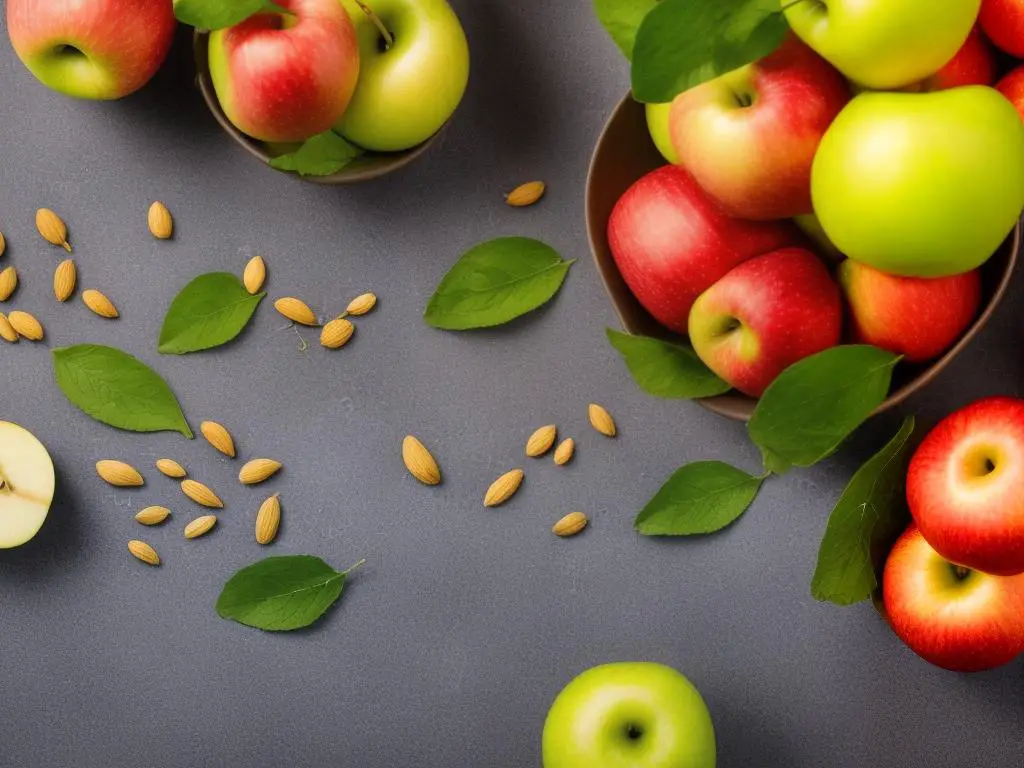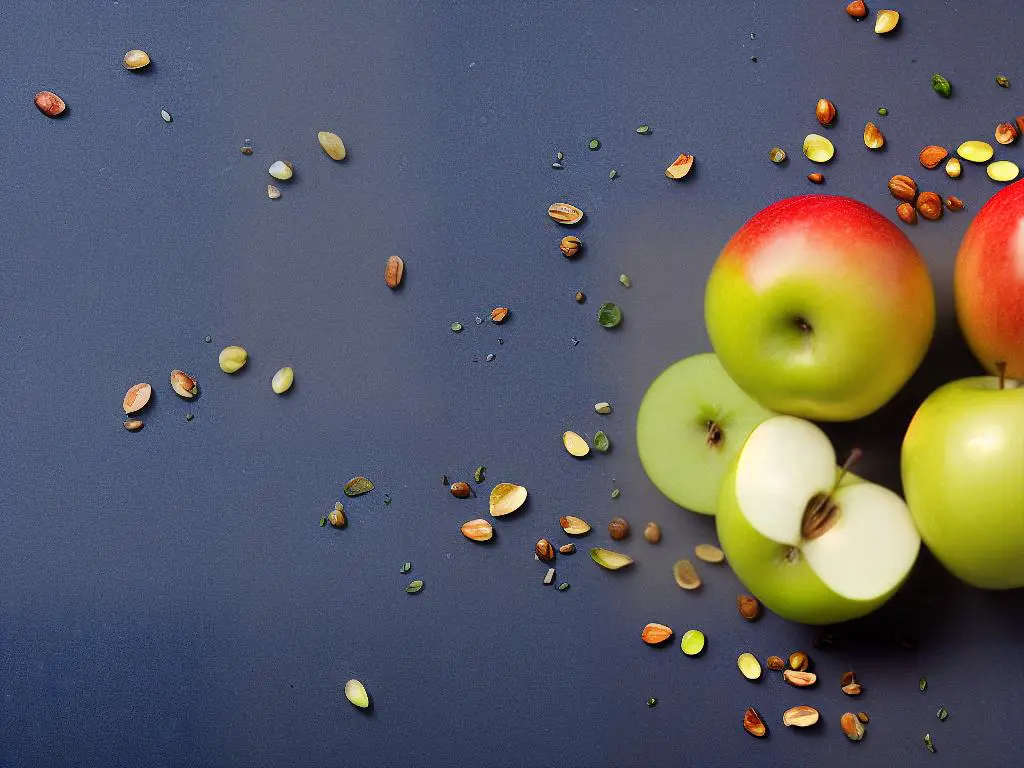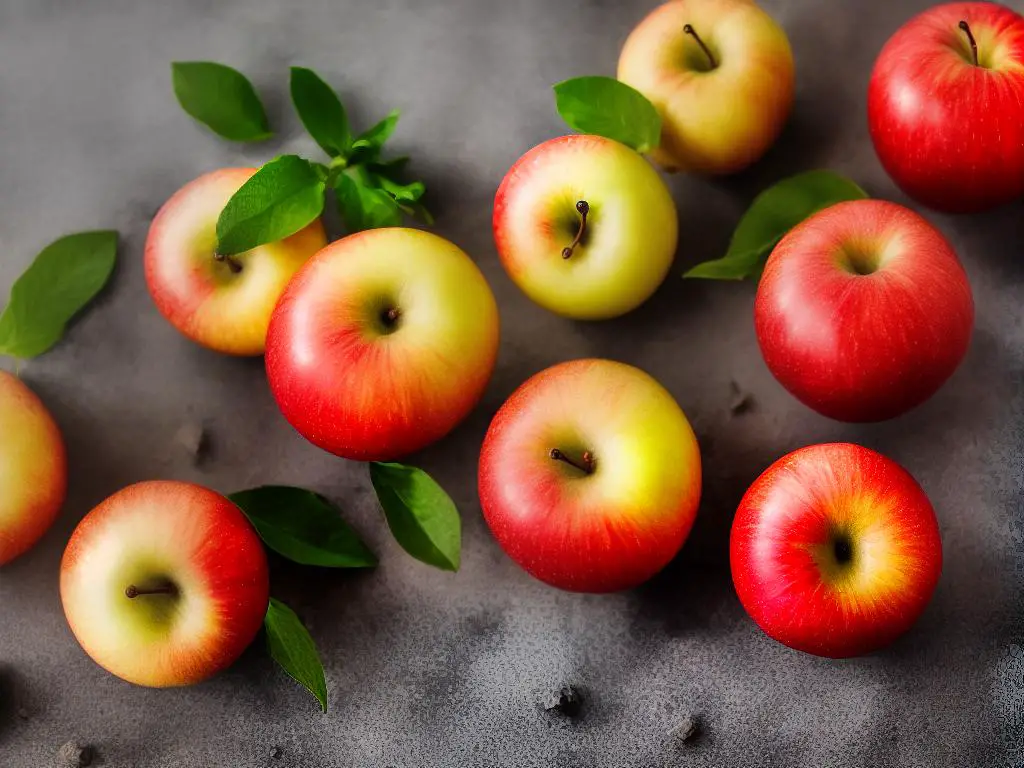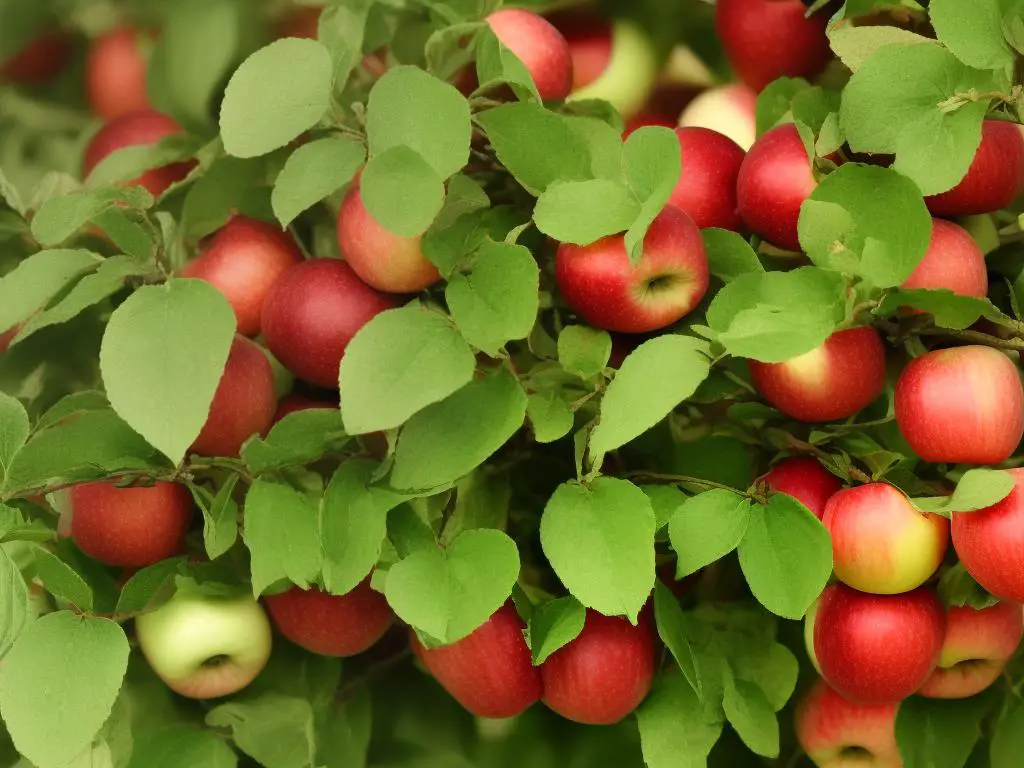Apples are widely recognized for their impressive nutritional content, providing numerous health benefits. In this article, we will explore how apples can specifically support liver health and function.
Nutritional Content of Apples
Apples are known to be a powerhouse of essential nutrients, which makes them highly beneficial for overall health and well-being. They contain an abundance of vitamins, minerals, and antioxidants that are vital for maintaining a healthy body. Some of the key nutrients found in apples are vitamins A, C, and K, as well as a variety of B vitamins such as thiamin, riboflavin, and pyridoxine. Furthermore, apples are rich in essential minerals like potassium, calcium, magnesium, and phosphorus. The presence of dietary fiber, known as both soluble and insoluble fiber, in apples is beneficial for digestion and maintaining a healthy gut.
The nutrients found in apples have been linked to liver health in several ways. The high content of vitamin C in apples acts as a powerful antioxidant that helps in protecting the liver from oxidative stress and harmful substances. This function is supported by other antioxidants such as quercetin, catechin, and chorogenic acid, which work together to neutralize free radicals in the body. These free radicals can cause cellular damage, inflammation, and disease, including liver disorders.
Apples, known for their high antioxidant content, are beneficial for liver health and function. They contain flavonoids, such as quercetin, and polyphenols, including catechins and chlorogenic acid, which neutralize harmful free radicals in the body. As a result, liver cells are protected from oxidative stress and damage. Additionally, these antioxidants have shown anti-inflammatory effects that further support liver health and function.

Specific Benefits for Liver Health
Apart from antioxidants, apples also provide soluble fiber, or pectin, which lowers blood cholesterol levels and reduces strain on the liver. Research has identified specific compounds in apples that support liver function by reducing inflammation and promoting liver cell regeneration. One such compound, ursolic acid, is found in apple peels and is associated with a reduced risk of liver disease due to its anti-inflammatory and hepatoprotective properties. In conclusion, incorporating apples into your daily diet significantly impacts liver health by offering essential nutrients and antioxidants that support liver function and protect against potential damage and disease.
Another crucial factor that contributes to the liver benefits of apples is their high fiber content. Apples are an excellent source of both soluble and insoluble fiber. The soluble fiber, specifically pectin, present in apples supports the liver by aiding in cholesterol regulation and the removal of toxins through bile production. This can alleviate the burden on the liver and can contribute to a healthier organ. On the other hand, insoluble fiber promotes regular bowel movements and overall gut health, which can indirectly support liver function by helping regulate body fat levels and minimize the risk of fatty liver disease.
Apples are not only rich in antioxidants and fiber, but they also contain essential nutrients that contribute to liver protection and regeneration. Vitamin C, found in apples, aids in the production of glutathione, a potent antioxidant necessary for liver detoxification processes. Furthermore, apples are a natural source of malic acid, which may help soften and dissolve liver stones, promoting overall liver health. Incorporating apples into a healthy diet can provide numerous benefits for liver function.

Variety and Consumption Guidelines
Apples are commonly recognized as a beneficial fruit for liver health due to their high content of antioxidants and fiber. Among the many varieties available, Granny Smith apples are known to offer the most health benefits related to liver function, as they contain the highest concentration of non-digestible compounds, such as dietary fiber and polyphenols. These compounds play a vital role in maintaining a healthy gut microbiota, which in turn directly impacts liver health. Additionally, organic apples may be a better choice due to their higher concentration of beneficial nutrients and lower pesticide residue levels.
When considering apple consumption for liver health, it is important to consume the whole apple, including the skin. This is because the skin of the apple contains a high amount of antioxidants and fiber, which are essential for maintaining liver function. It is generally recommended to eat one to two apples per day as part of a healthy, balanced diet. However, moderation is key, as overconsumption of apples could lead to a high sugar intake, ultimately harming the liver. Moreover, apple juice should be consumed in limited quantities, as it lacks fiber and often contains added sugars.
In order to promote a healthy liver and overall well-being, it is important to incorporate apples into your daily routine, alongside a balanced and varied diet. This diet should consist of other fruits and vegetables, whole grains, lean proteins, and healthy fats, providing a wide range of nutrients necessary for supporting liver function and overall health. Additionally, engaging in regular physical activity and avoiding excessive alcohol consumption can further enhance liver health.

Combining Apples with Other Foods for Liver Health
Apples are known for their numerous health benefits, including their positive impact on liver function. They are rich in pectin, a soluble fiber that helps eliminate toxins and cholesterol from the liver, and antioxidants that protect against free radicals and inflammation. By incorporating apples into your daily diet and pairing them with other nutritious foods or supplements, you can establish a strong foundation for optimal liver health and overall well-being.
A Powerful Combination with Cruciferous Vegetables
A powerful combination to support liver function is to pair apples with cruciferous vegetables like broccoli, Brussels sprouts, and kale. These vegetables not only provide a variety of essential nutrients, but they also contain natural compounds known as glucosinolates, which have been shown to help detoxify the liver and protect it from damage. Additionally, nuts and seeds, such as almonds and flaxseed, provide beneficial omega-3 fatty acids and fiber that promote liver health. Combining apples with these foods or adding them to salads and smoothies can create a powerful liver-cleansing meal.
Another effective pairing for liver health
Apples, along with herbs and spices that support detoxification, such as turmeric, milk thistle, and dandelion root, make an effective pairing for liver health. Turmeric contains curcumin, which has anti-inflammatory and antioxidant properties that can help protect liver cells from damage. Milk thistle is known for its liver-protecting and regenerative capabilities, while dandelion root aids the liver in eliminating toxins as a natural diuretic. Consuming these herbs and spices with apples can enhance their liver-protecting properties. Additionally, drinking apple cider vinegar diluted with water can also support liver health, as it promotes detoxification and balances the body’s pH levels.

Evidence and Research on Apple’s Impact on Liver
Several research studies support the beneficial effects of apples on liver health, primarily due to their antioxidants, fiber, and other nutrients. Apples’ polyphenols have been extensively studied for their antioxidant properties, which combat oxidative stress and protect the liver from damage. A 2007 study published in the Journal of Medicinal Food found that apple polyphenol extracts had hepatoprotective effects in rats, suggesting potential benefits for human liver health as well. By combining apples with various foods, herbs, and spices, you can optimize liver function and promote overall health.
Another study published in the World Journal of Gastroenterology in 2013 investigated the effects of apple polyphenols on nonalcoholic fatty liver disease (NAFLD) in mice. The findings revealed that apple polyphenols significantly lowered liver injury markers and decreased lipid accumulation in the liver. This suggests that consuming apples can potentially help reverse liver injury and prevent the progression of NAFLD, which is a common chronic liver disease affecting millions of people worldwide.
Furthermore, apples are packed with fiber, most notably pectin, which has been shown to support healthy digestion and metabolism. A study published in 2015 in the European Journal of Nutrition found that pectin supplementation improved liver health in rats with high-fat diet-induced NASH (nonalcoholic steatohepatitis) by preventing lipid accumulation and decreasing inflammation. Overall, the evidence points towards a positive relationship between apple consumption and liver health, reinforcing the value of incorporating this fruit into a balanced diet.

Ultimately, incorporating apples into a balanced diet, along with other liver-supporting foods, can have a positive impact on your liver health. By understanding the nutritional benefits and research-backed evidence, you can make informed decisions to protect your liver and enjoy a healthier lifestyle. So go on and enjoy the crunch of an apple, knowing that you’re doing your liver a favor.
